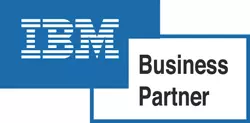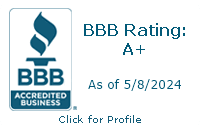How do you manage your staff "garden"?

Last year at this time, I wrote:
I am SO glad 2020 is in the rear view mirror! This was an unprecedented year in both my personal life and, in particular, my work life. As in prior years, consistently practicing personal accountability allowed me to guide my business through 2020.
Change 2020 to 2021, and this summarization is still accurate.
Reflecting on 2021
We began 2021 much like 2020 – the pandemic was still with us, creating uncertainty for us in our personal, work, social, and societal lives. Once again, the federal government provided help to individuals and businesses, with the goal of keeping the economy afloat. What was different? Vaccines were now available, giving the real possibility that we'd be back to "relatively normal" sometime during the summer. Regrettably, the Delta variant, vaccine hesitancy, and now the Omicron variant have pushed off "relatively normal" to sometime in – hopefully – 2022.
As I look back on 2021, one thing stood out to me – how much of my time was required to manage different staff members.
Staff as Types of Plants
While looking through my bookcases with personal accountability in mind, I came upon a book from one of my favorite authors on this topic, Linda Galindo.
Way to Grow: Cultivating the Weeds, Daisies, and Orchids in Your Organization is a short book that effectively describes – in Linda's entertaining style – how your staff members can be classified, based on their development level and personal accountability (pages 2 through 5):
- Orchids – Team members requiring the most of your time, because they are new, apathetic, or not quite the right fit for the job.
- Daisies – These employees require much less of your time because they can largely figure things out themselves – still, they do need some coaching from you on skills, self–confidence, or regaining ground lost due to personal or health problems.
- Weeds – These are the most desirable team members, because they take hardly any of your time at all. They can – and do – take the next step themselves, get their work done well and on time, and thrive on challenges.
I find it ironic that Weeds, universally undesirable in the lawn and garden, are actually the most desirable plant in Linda's analogy.
Linda then relates the employee types to personal accountability – that is, the extent an employee believes their results are determined by themselves (pages 11 and 12):
- Weed-Employees believe 85% or more of their success depends on themselves, regardless of circumstances, and will work hard to navigate around obstacles in the other 15%.
- Orchid-Employees "blame failure, mistakes, and missed opportunities on everyone but themselves. ... To them, factors beyond their control – like a coworker's actions, a supervisor's attitude, a lack of resources, or simple bad luck – determine how the project will turn out." They might believe they only account for 50% of their results, and responsibility for the other 50% lies elsewhere.
- Daisy-Employees fall in between the other two types, believing they account for 70% to 80% of their success, while outside factors might determine 20% to 30% of it.
Personal Accountability in Staff Members
From the start of 2021 through mid-June, my staff were all Weeds – they didn't need much direction from me, beyond routine check-ins. One staff member left in mid-June, though not before providing her replacement with several days of training and then several more days being available for questions. For my new staff member, I knew I'd have to devote more time on her than on her predecessor – after all, new staff members are, by definition, Orchids and require high levels of direction, feedback, and praise.
For the first month, the new staff member showed signs of growing into a Daisy. Even after a few months on the job, she still had questions about, or problems doing, various tasks we'd previously worked through. I was spending a lot of time working with her, making her an Orchid in terms of management time and effort. The following month, the same questions arose, frustrating both her and me. By this time, she had decided this position was not a good one for her and gave a sufficient amount of notice to allow me time to find and onboard her successor.
My newest associate started in late November, understudying a little over a week with her predecessor. Once she was on her own, I knew she would require a large amount of my time and attention because she was still new and thus an Orchid.
This associate has good attention to detail, good self-review techniques, good retention of her training, and good understanding of both the "what" and the "why" of the tasks being performed.
Bottom line – she has already grown into a Daisy, and I expect her to be a Weed within a couple more months.
Personal Accountability for Hiring Personally Accountable Staff
The key aspect of "Personal Accountability" is that first word – it is Personal and not something I can mandate. A person with low personal accountability will not change until they decide to change – and they may never decide to change. I can, however, look for and hire people already possessing strong personal accountability by screening for this and other key qualities. When an associate decides to leave, it is always up to me – and me alone – to ensure I find the best possible person to succeed them.
Rebound – Business and Basketball
Business owners must have high personal accountability to stay in business, and 2021 definitely tested mine.
As I mentioned last January, I believed 2021 would be "a year when multiple things will improve and lead to a Rebound in many areas." For Todd Herman Associates (THA), 2021 was indeed better than 2020 – even though revenues were still below 2019 levels, they were up 20% over 2020, and the work I'd done ON my business paid off even more in 2021. My goal for 2021 was to capitalize on every opportunity available to us – we did, and that's why 2021 was a rebound year compared to 2020.
Of course, here in college hoops country, Rebound means grabbing the basketball as it comes off the glass. How does employee growth affect how they go after a rebound? Orchids would be very timid in going after the ball, because they are inexperienced or apathetic. I believe Daisies would attempt to grab the ball if it came near them, while Weeds would aggressively crash the boards to get the R.
Looking Forward to 2022 – Success Through High Personal Accountability
What's in store for 2022? My natural optimism says it will be better than 2021, though how much better is uncertain. With THA once again having high levels of personal accountability from top to bottom, I feel confident 2022 will be a successful year, regardless of the challenges that come our way.
Sincerely,
![]()
Todd L. Herman





